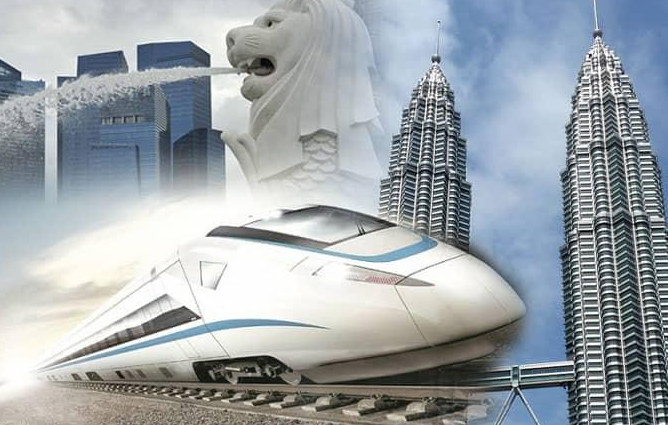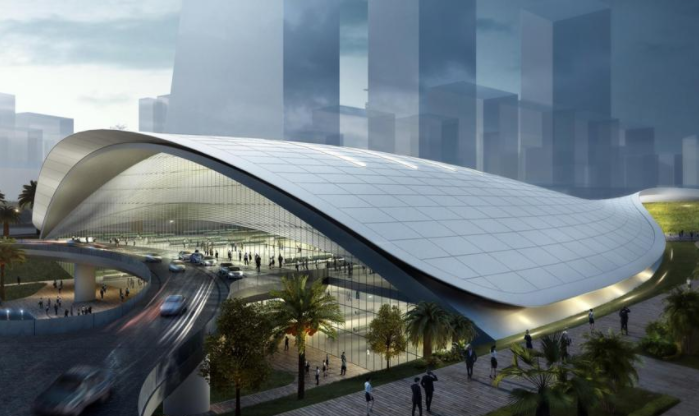Government information
Is the Xinlong high-speed rail "sooner or later" or "don't hold out too much hope"?

Take your time and wait to get it?
When the new Malaysian government takes office, it is inevitable that some old accounts will be settled, and the ill-fated Singapore-Longguan high-speed rail project is one of the most frequently raised old accounts.
Some analysts earlier believed that with Anwar taking over as prime minister, the relationship between Singapore and Malaysia should be restored to stability, and many previously unresolved issues could be resolved.
Some people in Singapore and Malaysia rekindled hope, hoping that the vision of taking the high-speed rail to and from Singapore and Kuala Lumpur in 90 minutes will see the light of day again.
However, experts have different opinions on whether the Xinlong high-speed rail will be restarted.
Some people believe that as Anwar, who has a more open style of governance and economic philosophy, takes over as prime minister, it will be a matter of time before the restart of the high-speed railway.
However, some people say that it is best not to have too much hope, because restarting the high-speed railway will not be the top priority of the new Malaysian government. Whether the passenger flow is sufficient to support the operation will also affect the willingness of the Malaysian authorities to restart the high-speed railway.
In any case, based on analysis from all walks of life, it is almost certain that even if the plan is restarted, it will not be in the near future.
"Sooner or later" or "better not to get your hopes up"?
According to Shin Min Daily News, Dr. Chen Tianjin, a political scientist at Nanyang Technological University, believes that dealing with domestic issues is still Anwar's top priority at this stage. How to organize a unified and stable government, boost the national economy and improve people's well-being is the key.
Only when these problems are resolved, can the Xinlong high-speed rail project be put on the table for discussion again.
But he also mentioned an important point:
"Those who oppose the construction of high-speed rail, most of them should no longer be in this (Malaysian) government." (Mahathir, Muhyiddin, talking about you)
Chen Qingwen, an associate professor of the Law Department of Singapore Management University, said that how quickly the Xinlong High Speed Rail can be re-examined and restarted depends on how much the Malaysian people attach importance to the project.
However, he believes that as time goes by, the benefits brought by the high-speed rail to both Singapore and Malaysia will only increase:
"I think the question is not if the high-speed rail will restart, but when it will restart."
Serina Rahman, an associate research fellow at the ISEAS-Yusof Ishak Institute, is relatively pessimistic.
In a special article published by Channel News Asia, she bluntly stated that it is best not to have too much hope for the restart of the Xinlong High Speed Rail in the short term.
Passenger flow and operational issues will be one of the considerations for whether the plan will be restarted.
Selena Raman said that although the Xinlong High Speed Rail can shorten the journey of four to five hours to 90 minutes, she doubts how many people will be willing to take it.
"Business travelers should be more willing to pay a little more to fly, and the price of some low-cost airlines is even cheaper than high-speed rail. For those without cars, the long-distance express train between Johor Bahru and Kuala Lumpur usually takes about four hours and is the cheapest. Economical choice."
She believes that it is difficult to say whether the high-speed rail fare can be affordable by ordinary people when people are generally financially struggling.
The Anwar government has made reducing inflation and addressing the rising cost of living a top priority, meaning that a more luxurious transport option like the high-speed rail is unlikely to be on the priority list.
She also mentioned that on the economic level, Singapore is more attractive than Kuala Lumpur, so the traffic demand may be more one-way, that is, the demand for Singapore is high, and the demand for Kuala Lumpur is low.
All these factors may affect the willingness of the Malaysian authorities to restart the high-speed railway.
The article also pointed out that the 900,000 Malaysians working in Singapore are more concerned about the completion of the Singapore-Johor MRT. After all, it will help ease the traffic on the Singapore-Johor Causeway and the Singapore-Malaysia Second Corridor. If there are no accidents, the new Johor MRT is expected to be put into operation in 2027.
She concluded that it is best not to have too much hope for the restart of the Xinlong high-speed rail at this stage.

The political situation remains the key to the sustainability of important policies
As early as 2013, Singapore and Malaysia agreed to jointly build the Singapore-Longguan high-speed rail. In December 2016, a bilateral agreement was signed. The construction was originally scheduled to start in 2018 and start operation at the end of 2026.
However, after the first power change in Malaysia in 2018, the Xinlong high-speed rail project has been postponed many times.
After the former Prime Minister of Malaysia became Prime Minister in March 2020, he decided to stop the project. On January 1, 2021, Singapore and Malaysia officially terminated the Singapore-Longguan high-speed rail project. Malaysia also paid Singapore $102.815576 for this compensation.
However, when another former Prime Minister Ismail Sabri Sabri visited our country at the end of last year, he proposed to re-discuss the high-speed rail project, and our country also responded positively.
Our Prime Minister Lee Hsien Loong said at the time that the Singapore-Longguan high-speed rail project had been terminated by agreement, but Singapore was open to restarting discussions.
Deputy Prime Minister and Minister of Finance Lawrence Wong also said during his visit to Kuala Lumpur in September this year that he welcomes Malaysia's proposal to restart the project.
As for Anwar's attitude towards the Xinlong High Speed Rail, we can see the clue from a statement in January last year.
The statement pointed out that the Xinlong high-speed rail project can open up many business opportunities, including the introduction of tourists, business and foreign investment. Therefore, Anwar believes that from an economic point of view and long-term benefits, canceling the Xinlong high-speed rail project is unwise.
In any case, the fate of the Xinlong High Speed Rail may depend to a certain extent on the political situation in Malaysia.
Since the election in 2018, Malaysia has experienced political instability for many times, and the continuity of some important policies has been repeatedly affected.
Immediately, stabilizing the political situation and dealing with the people's living expenses are undoubtedly Anwar's top priority. Even if the Anwar-led government intends to restart the Singapore-Longguan high-speed rail later, it is still uncertain whether the unity government can survive until then.
The "90-minute distance" between Singapore and Kuala Lumpur seems to be indefinitely far away, and waiting is probably the safest stance.

